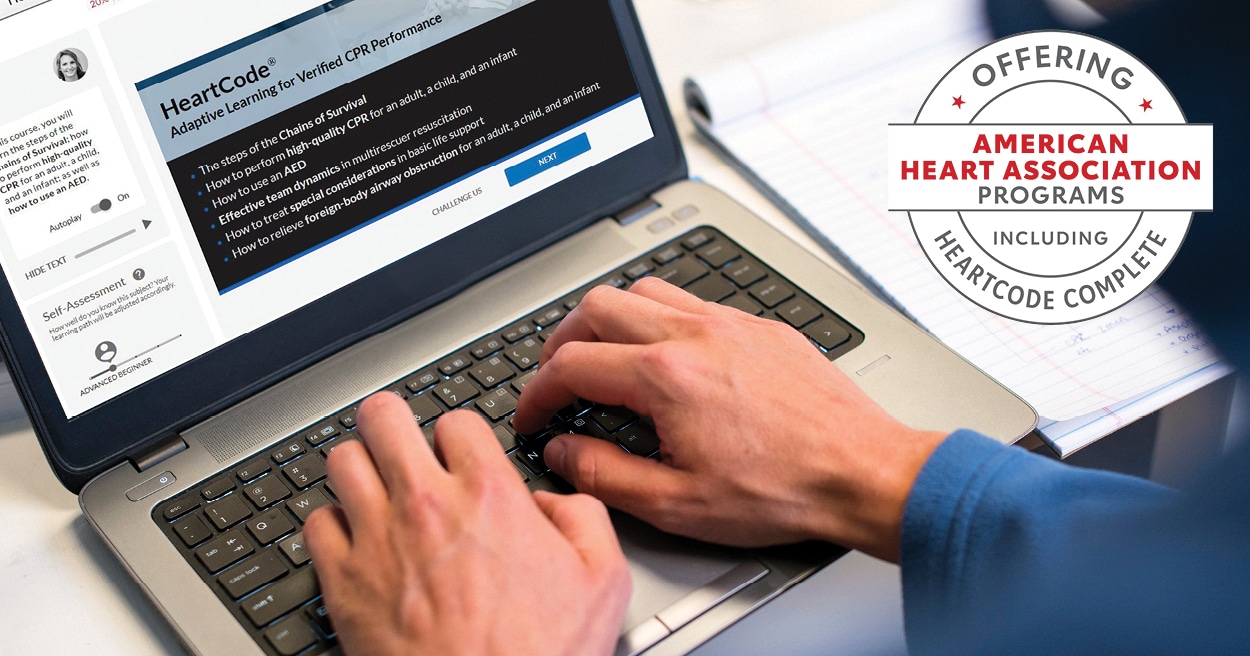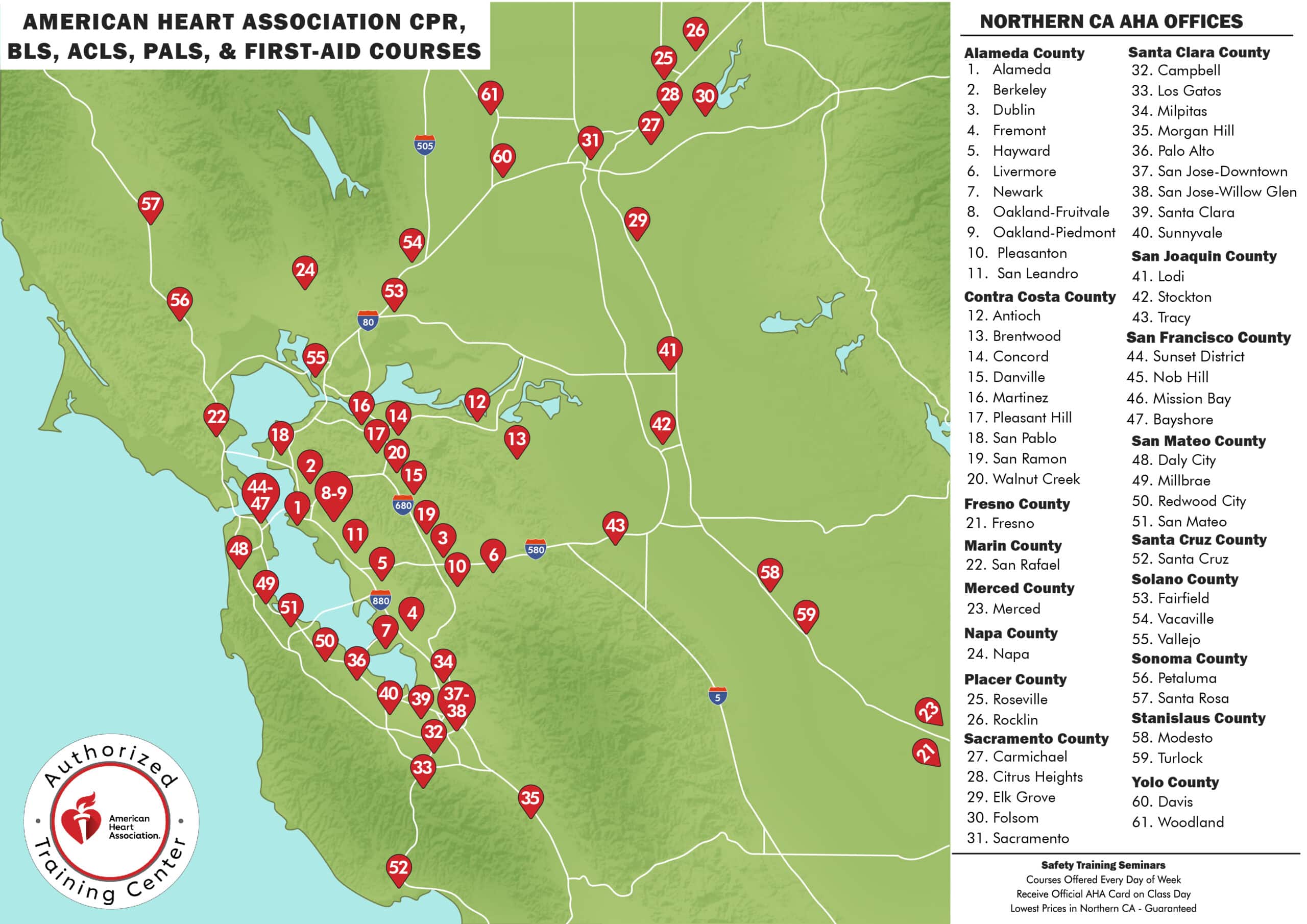American Heart Association© PALS Certification Classes in Davis

American Heart Association© PALS
Course Name: PALS Pediatric Advanced Life Support (Initial or Renewal)
Online Course Length: 3-4 hours (At your home.)
Skills Testing: 30-40 minutes (At one of our over 60 testing sites.)
Price: $290 (This includes the online PALS course, skills testing, & PALS card.)
Certification: American Heart Association© PALS certification card.
When: PALS classes are offered Monday – Sunday from 7 am to 6 pm
Card Issuance: You will receive the PALS certification card on day of class.
Add ons available: ACLS, BLS, First-aid, Opioid, or Bloodborne Pathogens
Low Price Guranetee: Lowest Prices in Northern CA. Price matching policy.
View PALS Courses in Davis & Other Cities Near You
Store locator is loading from StoreRocket Store Locator App..

Ensuring Pediatric Safety: American Heart Association PALS Classes in Davis
In Davis, California, American Heart Association (AHA) Pediatric Advanced Life Support (PALS) classes stand as vital educational resources for healthcare professionals. These classes provide comprehensive training in pediatric emergency care, equipping participants with the knowledge and skills necessary to manage pediatric cardiac and respiratory emergencies effectively. In this article, we delve into the significance of AHA PALS classes in Davis, their accessibility, comprehensive curriculum, hands-on learning experiences, and profound impact on pediatric healthcare delivery and patient outcomes.
Pediatric Emergency Preparedness
Pediatric emergencies require specialized knowledge and skills to ensure optimal patient outcomes. PALS training is essential for healthcare professionals working in pediatric departments, pediatric intensive care units (PICUs), emergency departments, and ambulatory care settings. By completing PALS classes, healthcare professionals enhance their ability to recognize and respond to pediatric emergencies promptly, ultimately saving lives and improving outcomes for pediatric patients.
Accessibility and Availability
PALS classes in Davis are designed to accommodate the diverse needs and schedules of healthcare professionals. These classes are typically offered at various times and locations throughout the city, making them accessible to participants from different healthcare institutions and organizations. Whether hosted by hospitals, medical centers, or educational institutions, PALS classes aim to provide convenient options for participants seeking specialized pediatric emergency care training.
Comprehensive Training Curriculum
PALS classes adhere to a comprehensive curriculum developed by the American Heart Association, incorporating the latest evidence-based guidelines and best practices in pediatric emergency care. Participants learn advanced assessment techniques, critical decision-making skills, and pediatric-specific interventions, including:
- Recognition and management of pediatric respiratory emergencies, including asthma exacerbations, pneumonia, and respiratory failure.
- Recognition and management of pediatric cardiac emergencies, including bradycardia, tachycardia, and pulseless arrest.
- Pediatric pharmacology, including medication dosages, administration routes, and adverse effects.
- Team dynamics and effective communication during pediatric resuscitation efforts.
The PALS curriculum is designed to prepare healthcare professionals to provide advanced pediatric emergency care in a variety of clinical settings.
Hands-On Learning Experiences
PALS classes in Davis incorporate hands-on learning experiences to reinforce key concepts and enhance participants’ proficiency in pediatric emergency care techniques. Participants have the opportunity to practice PALS skills on simulation manikins and other training equipment under the guidance of experienced instructors. This hands-on approach allows participants to develop the confidence and competence needed to perform pediatric interventions effectively in real-life emergency situations.
Simulation-Based Scenarios
Simulation-based scenarios are a critical component of PALS training, allowing participants to apply their knowledge and skills in realistic pediatric emergency situations. Instructors facilitate simulated pediatric cardiac and respiratory arrest scenarios, challenging participants to assess the situation, make rapid decisions, and implement appropriate interventions. These simulations provide valuable opportunities for teamwork, communication, and leadership development, helping participants prepare for the dynamic and high-pressure environment of real-life pediatric emergencies.
Certification and Recertification Options
Upon successful completion of PALS classes, participants receive certification, typically valid for two years. PALS certification demonstrates that healthcare professionals have completed the required training and are competent to provide advanced pediatric emergency care in clinical settings.
To maintain PALS certification, healthcare professionals are required to undergo periodic recertification, typically every two years. PALS recertification courses provide an opportunity for participants to review and refresh their skills, learn about any updates or changes in guidelines, and demonstrate proficiency in pediatric emergency care techniques.
Conclusion
In Davis, American Heart Association PALS classes play a crucial role in enhancing healthcare professionals’ ability to respond effectively to pediatric emergencies and improve outcomes for pediatric patients. By equipping participants with specialized pediatric emergency care skills and knowledge, PALS classes empower healthcare professionals to provide timely and life-saving interventions, ultimately saving lives and promoting better pediatric healthcare outcomes.
With accessible and comprehensive PALS training options available in Davis, healthcare professionals have the opportunity to enhance their expertise and make a meaningful impact in pediatric healthcare delivery. By investing in PALS education and certification, residents of Davis demonstrate their commitment to advancing pediatric emergency care and improving pediatric health and safety within their community.
FAQs
Who should attend PALS certification classes in Davis?
PALS certification classes are primarily designed for healthcare professionals who are involved in the management of pediatric patients, including pediatricians, emergency physicians, nurses, paramedics, and respiratory therapists.
How long does a PALS certification course typically last?
PALS certification courses usually span over two days, with a combination of didactic instruction, skills practice, and simulated scenarios to ensure comprehensive learning and skill mastery.
Is there a renewal requirement for PALS certification?
Yes, PALS certification is typically valid for two years, after which healthcare professionals are required to undergo PALS renewal courses to maintain their certification.
